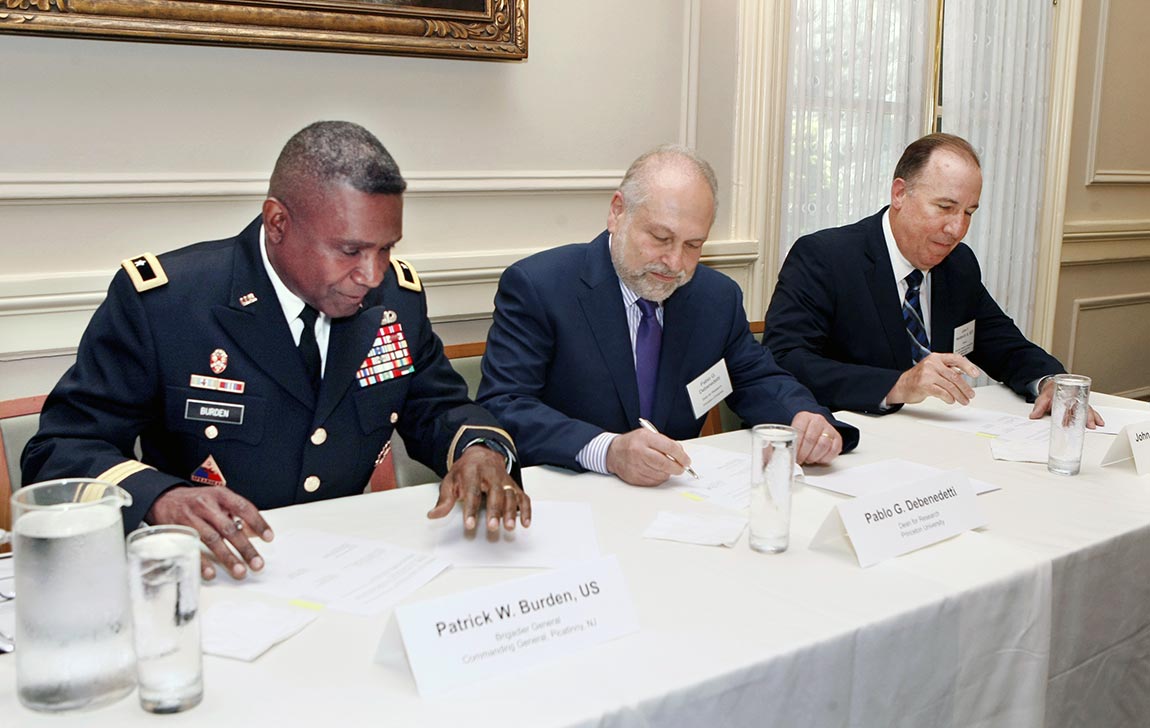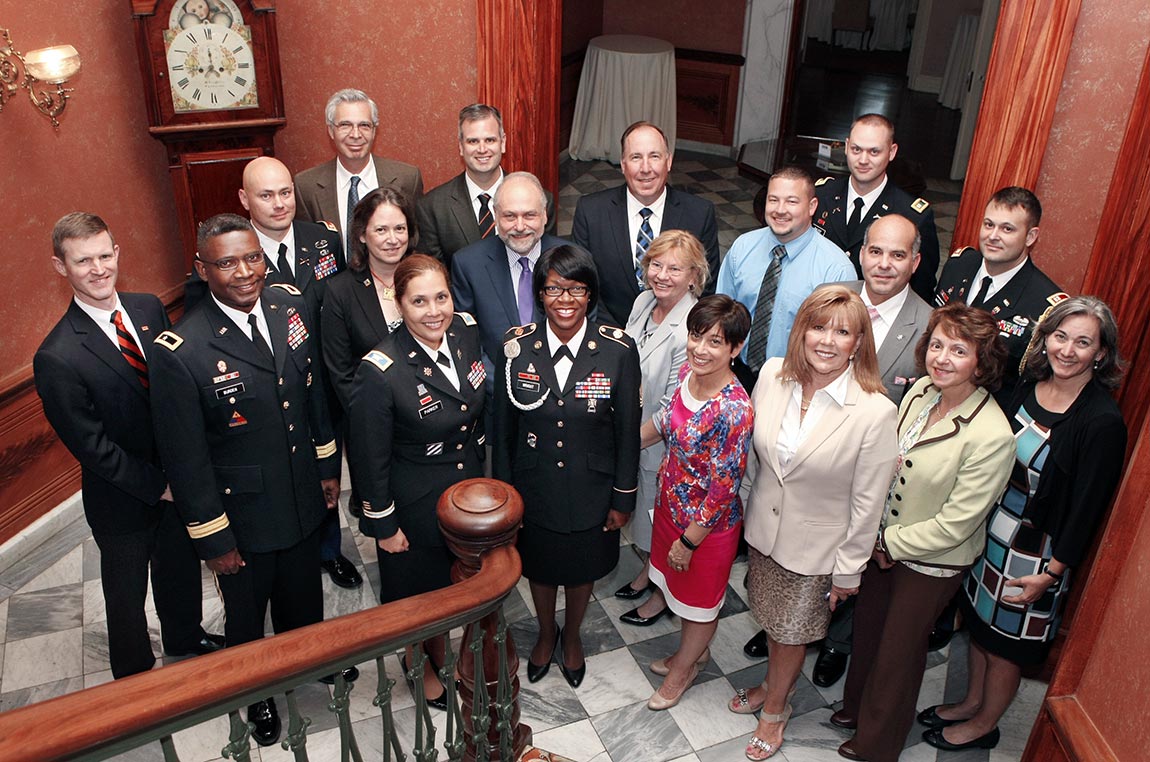Andlinger Center partners with U.S. Army on sustainable energy and environmental issues
Hailed as the first steps toward fruitful dialogue, collaboration and information exchange on sustainable energy and environmental research, the Andlinger Center for Energy and the Environment at Princeton University recently signed an agreement with the Picatinny Arsenal Garrison and the U.S. Army’s Armament Research, Development and Engineering Center.
“The Army’s commitment to sustainable energy and environmental remediation aligns extremely well with the Andlinger Center’s mission, which is to translate fundamental knowledge into practical solutions that will enable sustainable energy production and protection of the environment from energy-related anthropogenic change,” said Pablo Debenedetti, the University’s dean for research, Class of 1950 Professor in Engineering and Applied Science, and professor of chemical and biological engineering. “This seems like a marriage made in heaven. The goals align so well. We look forward to many years of productive partnership.”

Photos by Frank Wojciechowski for the Andlinger Center for Energy and the Environment
Through the new partnership, all three parties agreed to share ideas and institutional knowledge related to energy and environmental issues, help accelerate research, catalyze technology transfer, assist in meeting the Army’s sustainability goals, make available facilities and infrastructure at Picatinny for demonstration and research, and hold periodic site meetings to further grow dialogue and collaboration. Picatinny Arsenal is recognized as the Army’s home in northern New Jersey. The Armament Research, Development and Engineering Center, the largest tenant in Picatinny, researches, develops and manages weapon systems and munitions.
In 2015, the Department of Defense released a sustainability plan to make the armed forces use resources more efficiently, draw energy from renewable sources, and mitigate the effects of climate change on military operations and national security. Army representatives at the signing event June 6 in Prospect House at Princeton saluted the agreement as a step towards meeting these goals.
Focusing on sustainable energy and environmental research and technologies helps save lives on the battlefield, said Brigadier General Patrick W. Burden, senior commander at Picatinny Arsenal.
“We have soldiers today who are responsible for transporting fuels or water,” Burden said. “This agreement will help reduce risks to our troops around the world. This can help keep soldiers off dangerous routes in different parts of the world.”
“The Army’s number one priority is mission readiness,” Burden continued. “Every dollar saved goes into readiness in the Army, so we can train more troops and invest in more soldiers. Any renewable energy savings we get in this project would definitely benefit this priority.”

On specific projects, the agreement may lead to a collaborative research program to take unused ammunition and convert it into biofuels instead of simply burning them as a means of disposal, said John Hedderich III, director of the Armament Research, Development and Engineering Center.
Paul Chirik, the Edwards S. Sanford Professor of Chemistry and associate director for external partnerships at the Andlinger Center, envisions the University sending researchers to Picatinny to do work and anticipates Picatinny sending their own researchers and even military personnel to campus to engage in events and conduct research.
“I think there are a lot of common areas of shared interest where we can work together and do great things,” Chirik said.
The partnership was applauded by Emily Carter, founding director of the Andlinger Center, the Gerhard R. Andlinger Professor in Energy and the Environment, and professor of mechanical and aerospace engineering and applied and computational mathematics.
“It’s so clear we share the same goals in energy resiliency and protection of the environment,” Carter said. “It’s exciting that we can work together. I hope it’s the first step in a substantial collaboration going forward.”
The Andlinger Center for Energy and the Environment supports a vibrant and expanding program of research and teaching in the areas of sustainable energy development, energy efficiency, and environmental protection and remediation.
